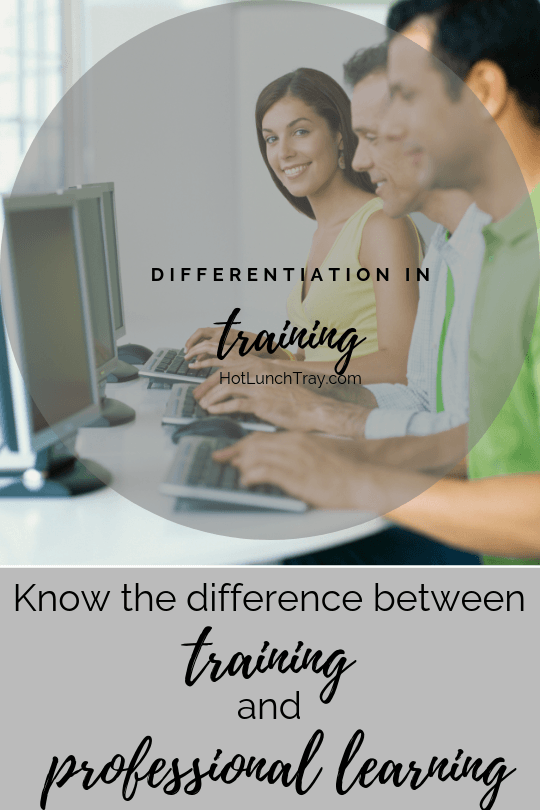I have been asked to differentiate face-to-face training before and struggled with it.
Now, teaching I differentiated all the time for my students… I was embarrassed that I could not differentiate that training, but half of what I was imparting was button pushing and account information – which I still am not sure I could have differentiated.
I bet the person who requested differentiation was frustrated. She was telling me that she was not getting what she needed. She was using a common pedagogical language with me, I knew what she was requesting,  but I was not able to give it to her. Did she feel disrespected? Did she feel bored? Will she come back to any of my future training?
but I was not able to give it to her. Did she feel disrespected? Did she feel bored? Will she come back to any of my future training?
That was years ago, but it has stuck with me. I do want to make training more meaningful. But for some training, I am not able to do so because I have to provide baseline information.
Can you Differentiate Training? Really?
I mean like real training; training on how to log in, push buttons and overviews of the features and benefits of technology. Training is a presentation of the basic rules of using technology software or hardware. I struggle with differentiating that content.
Training is the “WHAT,” the technical introduction to a technology required before the “HOW” of professional development happens around integration into the learning process. Often the training is a short burst of information throughout the professional learning, but sometimes it is a prerequisite to professional learning.
Could the Attendee Differentiate?
Maybe attendees can differentiate their goal for training? Not to offload the work to participants, but a good trainer does not assume participants have prior knowledge typically. If the participants contain beginners the trainer has to set that baseline and teach from it.
“My school has this particular literacy goal and I am attending TurnItIn, NewsELA, or Learning A-Z to see how this tool could aid our goal.”
Could the training be offered for levels of learners? Then the participants could opt-in to the level which is appropriate for them. This might be considered a self-differentiation strategy.
Possibly the school differentiates by the person attending the training? While not always an option, sending someone to training who needs to learn the basics yields a different experience than someone who is a power user.
Training gives way to Professional Learning
Once the “WHAT” of training is understood, the participants can move into the “HOW” of integrating technology into the learning process.
…so what was different about when I differentiated for my students?
Training is skills-oriented and immediately demonstrable, the skills can be practiced and with repetition become more ingrained. Teaching is beyond those skills, but to teach with technology specific skills are required to work some technologies successfully. I cannot skip over the skills, but I can help better message their role in the sessions I host.







3 Pingbacks